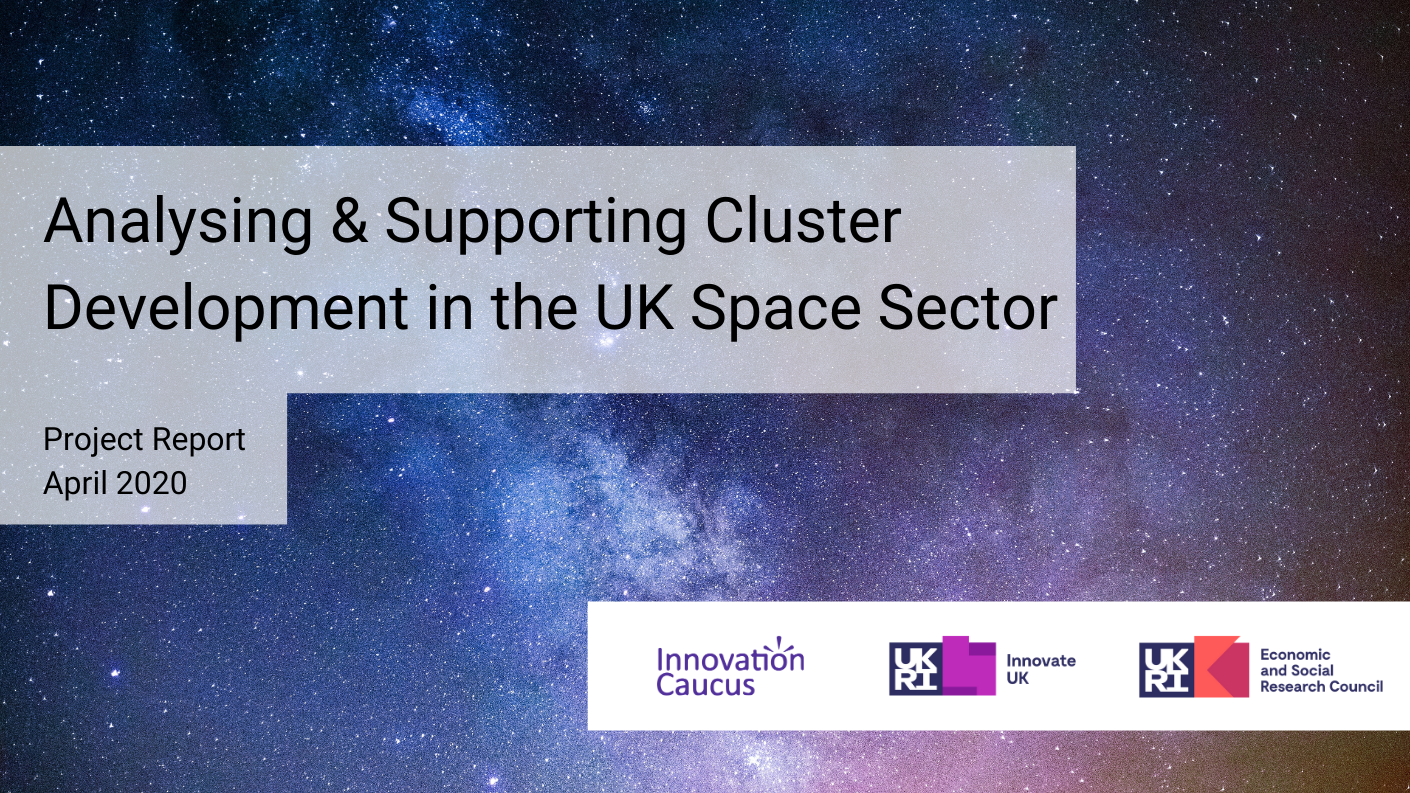Featured image uses a photo by Andy Holmes on Unsplash
This study was funded by Innovate UK. We are very grateful to colleagues at Innovate UK, the UK Space Agency, the Satellite Applications Catapult, the Department for International Trade, the Knowledge Transfer Network and other stakeholders for their input on the project, as well as to all those who generously gave their time to participate in the interviews and focus groups.
The Innovation Caucus has published a new report following a primary research project exploring the foundations, current characteristics, and factors affecting future growth of the space industry across five self-identifying clusters: i) Harwell, ii) Scotland, iii) Guildford/Farnborough, iv) Leicester and v) Cornwall.
The specific aims of the project were:
- to analyse formative local or regional clusters in the UK space sector.
- to create an assessment tool to help policy makers and leaders within clusters to understand and reflect on their current maturity and future development needs.
- to support future planning of initiatives and investment in the space sector.
Background:
The UK Government[1] has established ambitious growth targets for the UK space sector, including the that the UK’s share of the global space market should grow from 6.5% in 2014 to 10% by 2030. The stated view is that ‘space matters’ to the UK economy and that there is significant growth potential for the sector. The sector is estimated to have generated £14.8bn in income and contributed £5.7bn in GVA to the UK economy in 2016/17[2]. Whilst there is now regularly published evidence of the size and regional distribution of the space sector across the UK, there is little evidence of the scale and role of localised clusters of space activity which have developed across the UK as the industry has grown. The starting point for the study was the understanding that the UK space sector operates as an ecosystem consisting of a range of localised clusters. In order to achieve growth across the ecosystem, these localised clusters need to be supported according to their own needs and challenges, accepting that these may be different from one cluster to another. A process through which these clusters are identified and better understood is therefore required.
Report authors:
Professor Tim Vorley, Innovation Caucus Academic Lead, Oxford Brookes University
Dr Paul Vallance, Research Associate, University of Sheffield
Andrew Graves, Visiting Research Associate, University of Sheffield
[1] HM Government, National Space Policy
[2] London Economics (2019), Size and Health of the UK Space Industry 2018
